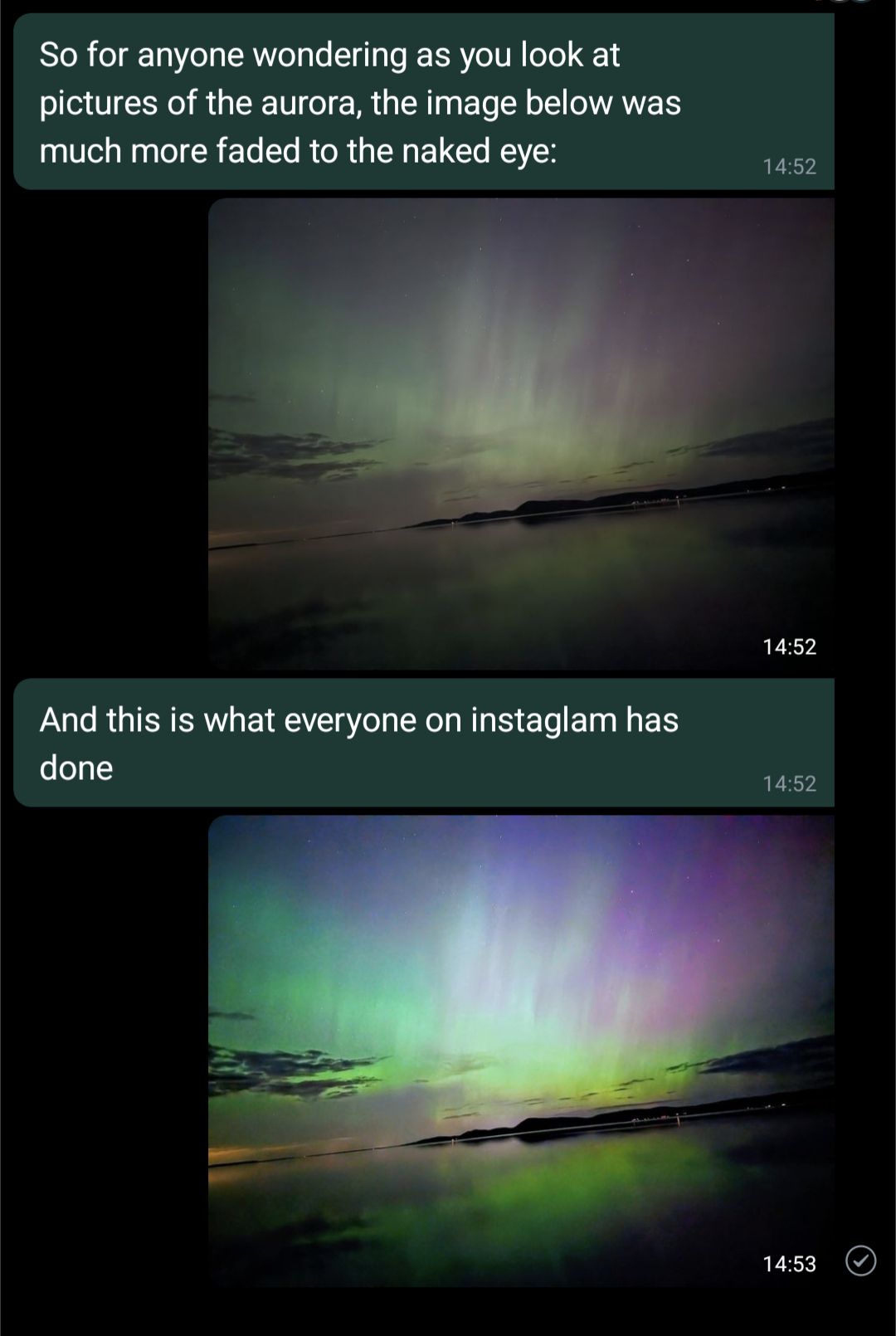this post was submitted on 12 May 2024
582 points (96.6% liked)
pics
24821 readers
264 users here now
Rules:
1.. Please mark original photos with [OC] in the title if you're the photographer
2..Pictures containing a politician from any country or planet are prohibited, this is a community voted on rule.
3.. Image must be a photograph, no AI or digital art.
4.. No NSFW/Cosplay/Spam/Trolling images.
5.. Be civil. No racism or bigotry.
Photo of the Week Rule(s):
1.. On Fridays, the most upvoted original, marked [OC], photo posted between Friday and Thursday will be the next week's banner and featured photo.
2.. The weekly photos will be saved for an end of the year run off.
Instance-wide rules always apply. https://mastodon.world/about
founded 2 years ago
MODERATORS
you are viewing a single comment's thread
view the rest of the comments
view the rest of the comments


This. Thank you for explaining it correctly, I’ve seen sooo many people saying it’s just filters. Of course, there will almost always be some colour correction but the way a camera a camera can capture the light is different to the naked eye.
Camera almost never can reproduce the image as our eyes see it. The dynamic range for example is vastly superior on eyes compared to a camera meaning that in some cases an HDR photo may infact more closely resemble the reality despite looking unnatural compared to a non-HDR photo.
While true, this is a bit misleading. While rhe eye does have a higher dynamic range than a standard camera lens and sensor, that is only true when there is enough light. In the dark, the situation is reversed, as the human eye has difficulty taking advantage of that range.
See edit and response above, thank you for the feedback.